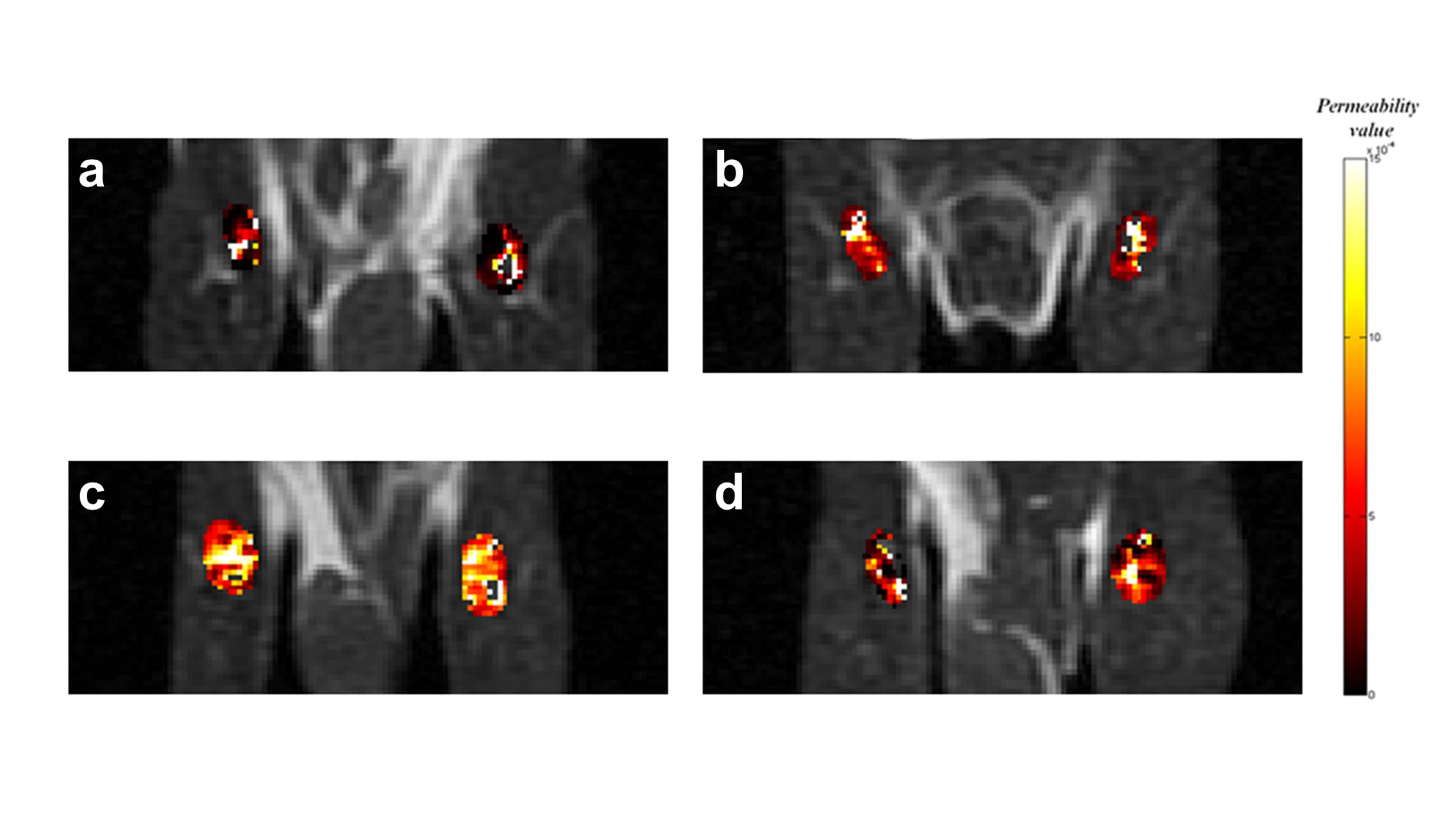Session Information
Session Type: Abstract Submissions (ACR)
Vascular permeability as an imaging biomarker for chronic inflammatory arthritis: A dynamic contrast enhanced magnetic resonance imaging study
Background/Purpose Rheumatoid arthritis (RA) is a chronic inflammatory disease in which adequate diagnosis of disease activity is particularly important for optimizing treatment outcomes. Dynamic contrast-enhanced magnetic resonance imaging (DCE-MRI) is used to detect inflammatory changes in synovial joints, and to discriminate active and inactive stages of disease. However, DCE-MRI has not been previously used to evaluate quantitative kinetic parameters, such as vascular permeability. The aim of this study was to investigate the quantitative changes in vascular permeability associated with chronic inflammatory arthritis.
Methods Arthritis was induced in DBA/1J mice by immunization with bovine type-II collagen emulsified in complete and incomplete Freund’s adjuvants. The severity of arthritis was monitored using the clinical arthritis index (CAI). R images of mice were obtained at different stages of arthritis progression, and 3 weeks after methotrexate (MTX) treatment. Immunohistochemical staining with an anti-CD31 antibody was used to assess vessel density.
Results Permeability maps on the knee joint revealed less heterogeneity during the active stage, compared to early and late stages of arthritis. Vascular permeability increased progressively until the active stage of arthritis was reached, and thereafter declined gradually. The pattern of permeability changes quantified using DCE-MRI was consistent with the vascular densities and disease activity. Furthermore, vascular permeability and densities decreased significantly in a dose-dependent manner after treatment with MTX.
Conclusion Vascular permeability assessed by DCE-MRI can be used as an imaging biomarker for tracking disease progression, and for monitoring therapeutic efficacy in inflammatory arthritis.
Disclosure:
E. J. Nam,
None;
Y. Chang,
None;
J. W. Park,
None;
S. Sung,
None;
J. Hong,
None;
M. Hasan Al Faruque,
None;
J. Lee,
None;
Y. M. Kang,
None.
« Back to 2014 ACR/ARHP Annual Meeting
ACR Meeting Abstracts - https://acrabstracts.org/abstract/vascular-permeability-as-an-imaging-biomarker-for-chronic-inflammatory-arthritis-a-dynamic-contrast-enhanced-magnetic-resonance-imaging-study/

